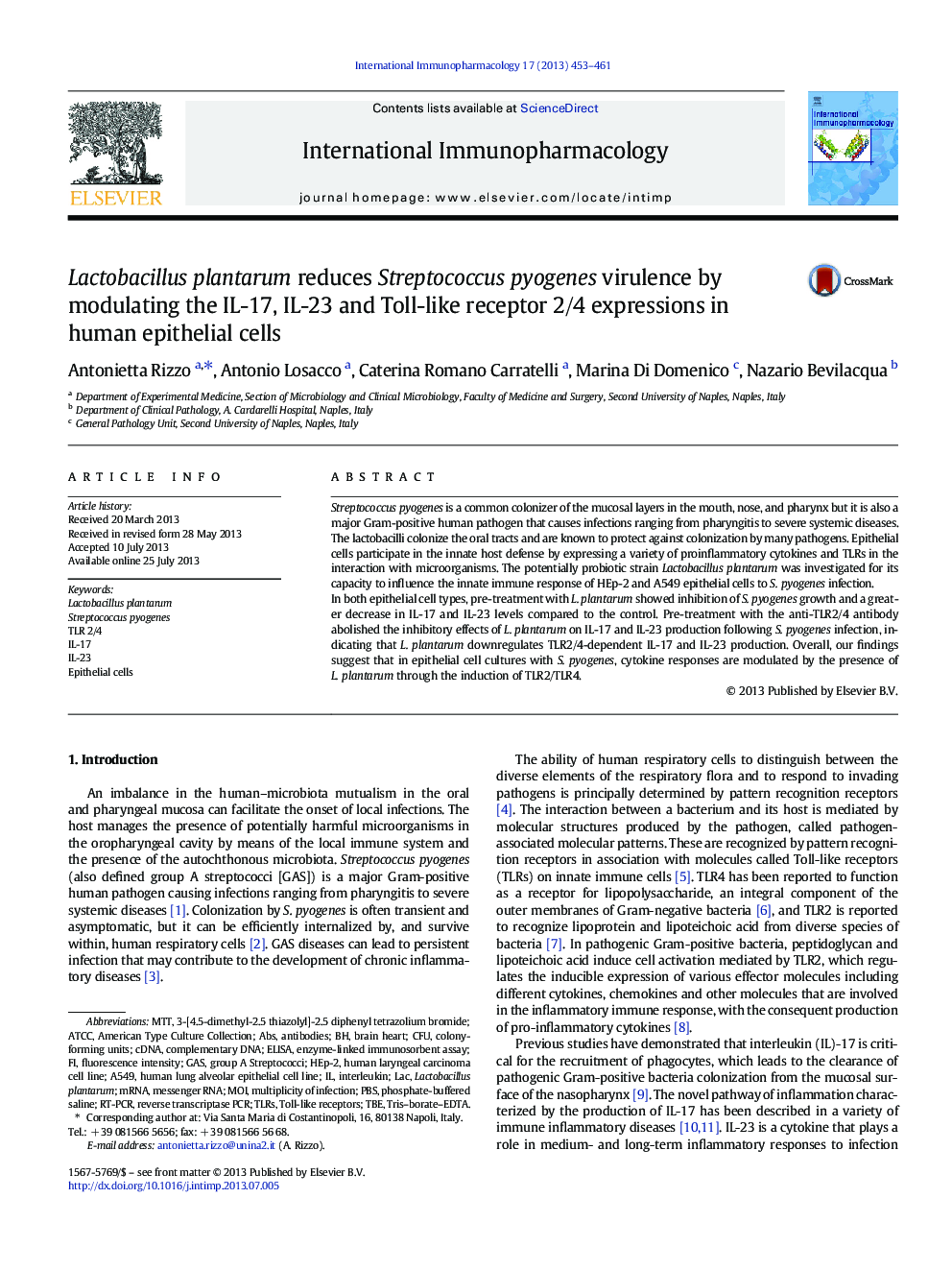| Article ID | Journal | Published Year | Pages | File Type |
|---|---|---|---|---|
| 5833450 | International Immunopharmacology | 2013 | 9 Pages |
â¢S. pyogenes infection stimulates the production of IL-17 and IL-23 in epithelial cells.â¢The induction of IL-23 and IL-17 by S. pyogenes is mediated by the TLR2/TLR4 pathway.â¢L. plantarum downregulates TLR2/4-dependent IL-17 and IL-23 production.
Streptococcus pyogenes is a common colonizer of the mucosal layers in the mouth, nose, and pharynx but it is also a major Gram-positive human pathogen that causes infections ranging from pharyngitis to severe systemic diseases. The lactobacilli colonize the oral tracts and are known to protect against colonization by many pathogens. Epithelial cells participate in the innate host defense by expressing a variety of proinflammatory cytokines and TLRs in the interaction with microorganisms. The potentially probiotic strain Lactobacillus plantarum was investigated for its capacity to influence the innate immune response of HEp-2 and A549 epithelial cells to S. pyogenes infection.In both epithelial cell types, pre-treatment with L. plantarum showed inhibition of S. pyogenes growth and a greater decrease in IL-17 and IL-23 levels compared to the control. Pre-treatment with the anti-TLR2/4 antibody abolished the inhibitory effects of L. plantarum on IL-17 and IL-23 production following S. pyogenes infection, indicating that L. plantarum downregulates TLR2/4-dependent IL-17 and IL-23 production. Overall, our findings suggest that in epithelial cell cultures with S. pyogenes, cytokine responses are modulated by the presence of L. plantarum through the induction of TLR2/TLR4.
